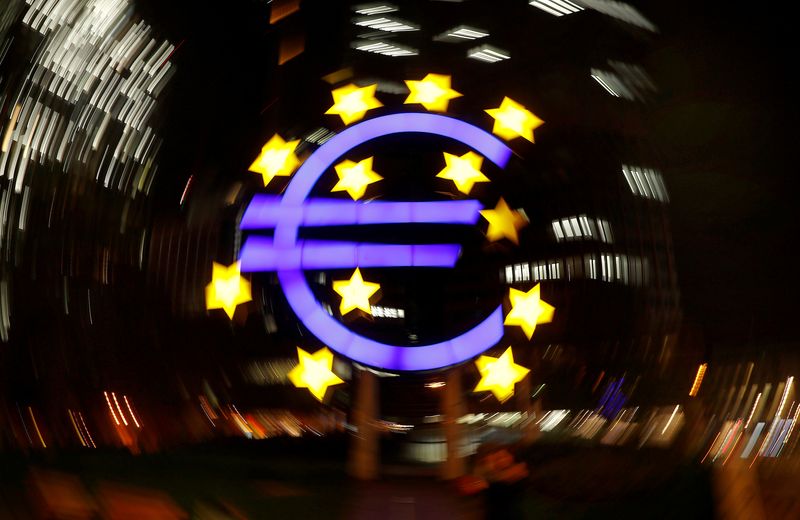By Amanda Cooper and Samuel Indyk
LONDON (Reuters) -The euro zone government bond market on Friday delivered the clearest sign yet that Germany, the region's largest economy, could be on the verge of a recession, as short-dated yields rose sharply.
Global bond yields plummeted on Thursday after data showed U.S. consumer inflation rose by much less than expected last month, which could offer the Federal Reserve some room to slow down the pace at which it plans to raise interest rates.
In Europe, data on Friday showed harmonised inflation in Germany, the euro zone's biggest economy, rose at a rate of 11.6% in October, its highest since reunification in 1990, due in large part to spiralling food and energy costs. Separate reports this week have forecast a steep drop in consumer spending.
Yields on the benchmark 10-year Bund rose by 15 basis points (bps), their largest one-day rise since late September, to trade around 2.153%.
Those on the two-year Schatz rose as much as 17 bps to a high of 2.15%, briefly pushing above those for 10-year debt. This inversion can often herald the onset of a recession.
"There is a widening acceptance that we're going to be seeing Germany in particular, but also the euro zone heading into recession in the first quarter of next year," StoneX strategist Fiona Cincotta said.
"All the signals are out there," she said.
The gap between two- and 10-year yields has only inverted on a handful of occasions in the last 20 years and only ever by a fraction, with the exception of the run-up to the financial crisis in 2008, when it turned negative by as much as 23 bps.
It traded as low as -1 basis point earlier in the day and was last in positive territory again, but only by 1.3 bps.
The European Central Bank raised rates earlier this month and flagged the risk that a prolonged period of high inflation posed to the economy. A raft of ECB policymakers this week have repeated the need for the central bank to control price pressures by tightening monetary policy, which has been ultra-loose for at least a decade.
Yet Europe's energy crisis is forcing governments to spend big to protect consumers and businesses, meaning more bond supply will hit the markets in the coming months. That complicates the ECB's efforts to tighten credit conditions to bring inflation back towards its 2% target from around five times that level currently.
Yields on Italian 10-year bonds rose 20 bps to 4.204%. Italy is one of the euro zone's larger, more indebted members. The closely watched gap between German and Italian 10-year yields earlier reached its narrowest since July, at 197.2 bps.
Analysts said the outlook for Italian bonds was less favourable as the ECB was expected to formalise plans to begin selling part of its bond holdings, so-called quantitative tightening (QT), next year.
"We're struggling to see how ECB QT doesn't see Italian bonds suffer," Rabobank senior rates strategist Lyn Graham-Taylor said.
"The fact we're going into what we believe will be a fairly large recession, we struggle to see how Italian bonds don't suffer during that process," she added.

Investors also were also watching geopolitical developments as China eased some of its heavy-handed COVID-19 rules on Friday and Russia said it planned to withdrawal forces from Kherson in Ukraine earlier in the week.
"Geopolitics is difficult to predict, but the news should be a positive for markets," said Mohit Kumar, interest rate strategist at Jefferies.